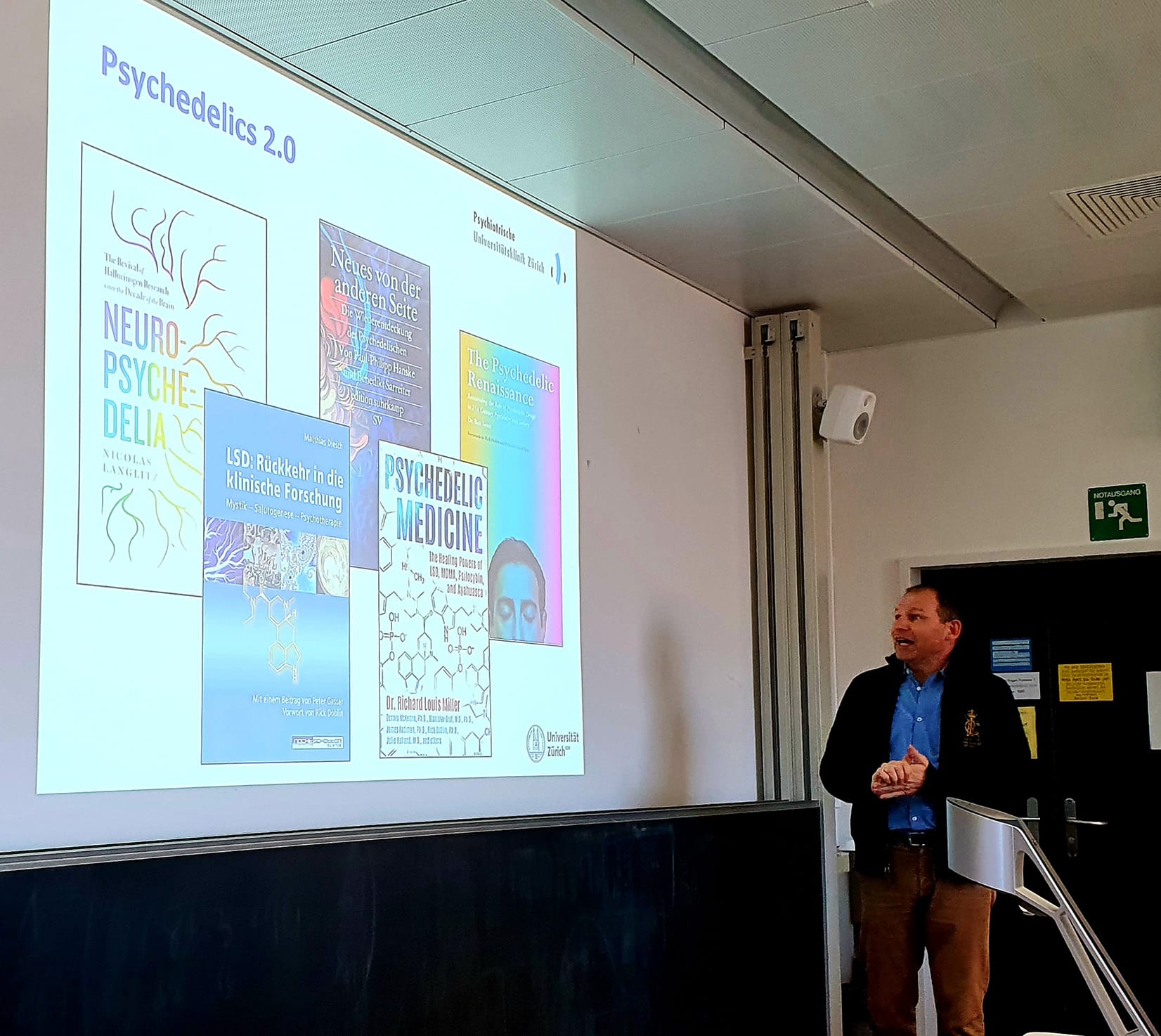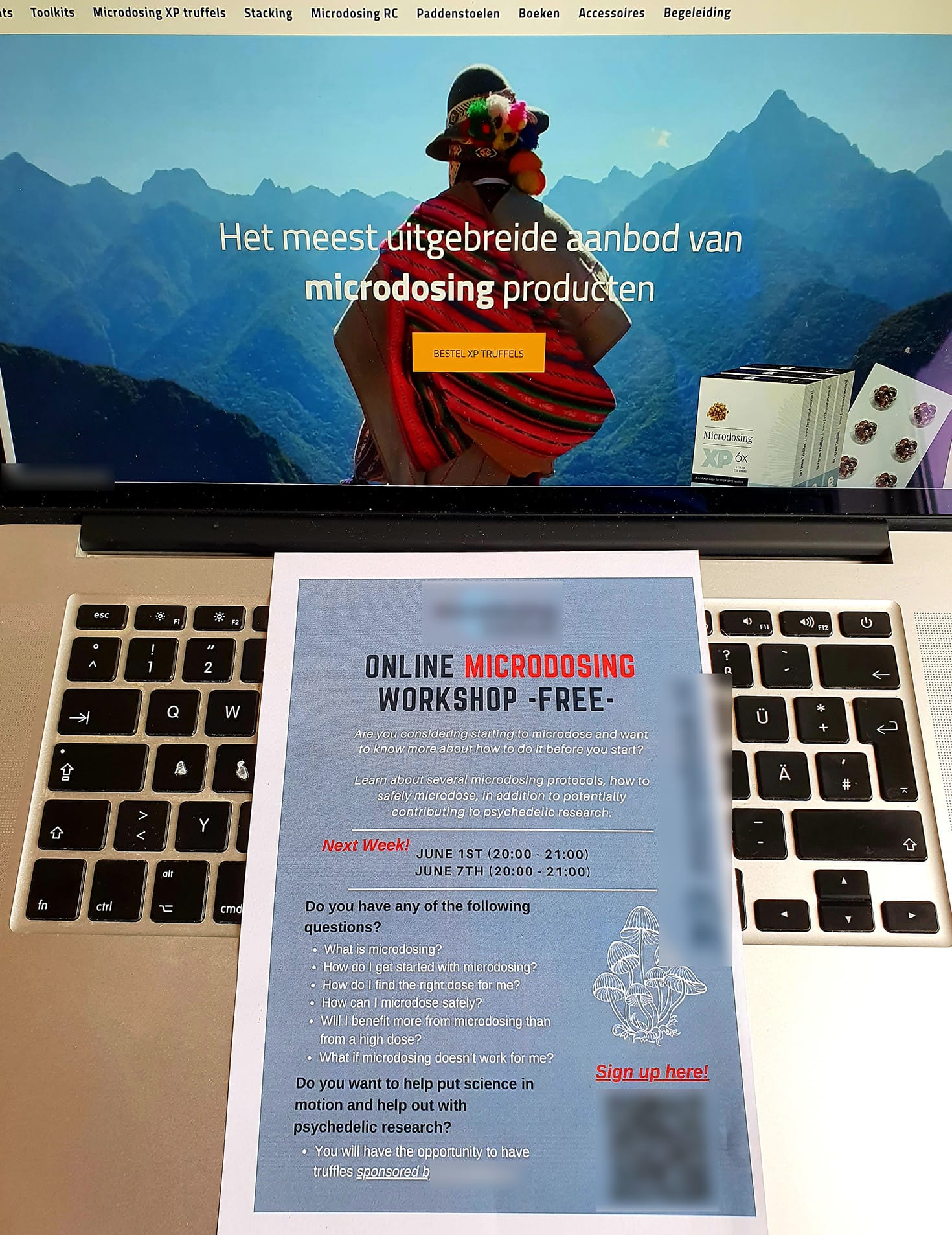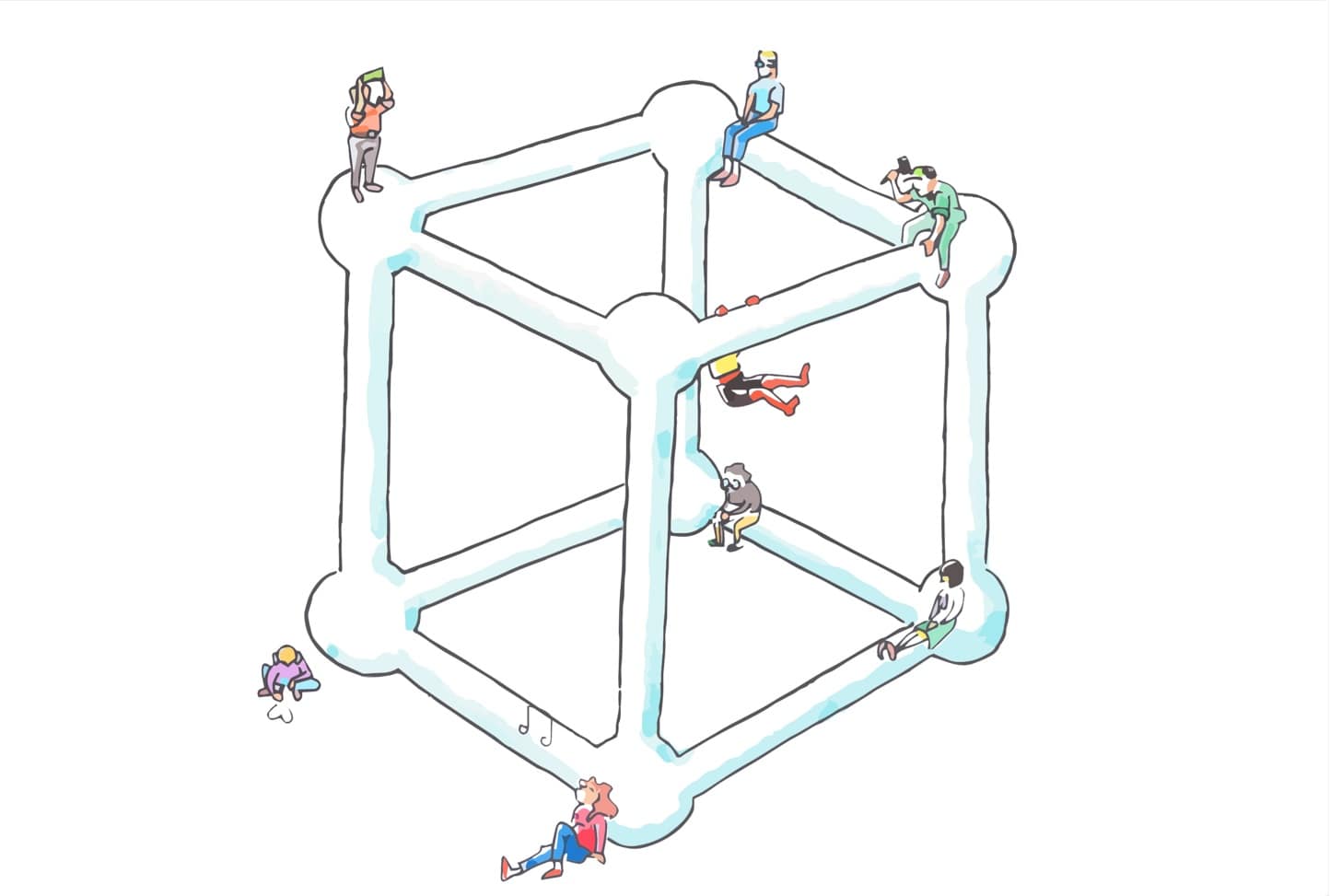
Psychedelics: New Chance or New Hype for Psychology?
You can hardly know any better that you’re teaching on a topical issue than when you find a flyer advertising it on the way to the seminar room. This year I’ve added a session on psychedelic drugs to the module “Sociology of Mental Health” that I’ve been teaching for our faculty at the Honours College since 2014. When I was just about to leave my office, I saw a couple of flyers intended to inform us researchers about the potential of microdosing of psychedelics in the pantry. Spoiler alarm: Recent research strongly suggests that the measured effects are subjective and placebo (e.g. Polito & Stevenson, 2019).
Figure: A photograph of the flyer I found just before teaching on psychedelics and showing an excerpt from a documentary (A New Understanding: The Science of Psilocybin) to my students. My computer screen shows this organization’s website. It turned out later that one of the students had found the same flyer earlier that day. (I blurred the names and links to the organization intentionally, as I doubt the validity and ethics behind their services.)
When I visited my academic friend Boris B. Quednow, Professor for Pharmacopsychology* at the Psychiatric University Hospital Zurich, this March, just when the traveling restrictions to reduce infections of the Coronavirus had been lifted, I came to follow-up on our earlier research on brain doping (e.g. Schleim & Quednow, 2018). Although Boris primarily investigates the effects of stimulant drugs like amphetamine (“Speed”) or cocaine to better understand mind and behavior, particularly the mechanisms of addiction, he introduced me to several colleagues researching the potential of psychedelics in therapeutic settings. To my surprise, all of them advocated the necessity to combine these drugs with psychotherapy. Thus, none of them sold them as the next “magic bullet”. Scientists’ general interest in the topic is also illustrated by the special issue on psychedelics just published in the journal Psychopharmacology this June.
Figure: Boris B. Quednow gave a lecture on psychedelics to medical students of the University of Zurich during my visit.
Also our (independent) university newspaper recently featured an article about one of our students who hosted sessions with Ayahuasca, a combination of substances including the psychedelic DMT (N,N-dimethyltryptamine). He described that he particularly addressed young men to help them talk about their feelings – and that he stopped when the High Court of the Netherlands clarified that the use of the substance, which is ritually used in South America, is against Dutch law.
During my stay in Zurich, their physiology students organized a Zoom lecture by David J. Nutt, Professor of Neuropsychopharmacology at Imperial College London, one of the leading experts on how psychedelics work in the brain and an advocate of a science-based drug policy. The latter inspired the title “The Dangerous Professor” that Science used to portray him years ago. The seminar room was crowded, with students sitting on the tables and even on the ground, and many watched online.
But when there is so much enthusiasm, doesn’t the risk of inflated expectations loom large? And let’s be aware that companies like Compass Pathways, Cybin or Mind Medicine invest a lot in making psychedelics the new treatment of mental disorders. Some of the researchers I’ve talked to in Zurich also have their own companies – and thus financial interests.
Zurich combined the advantage of a liberal drug policy and the availability of state-of-the-art neuroscience to allow researchers such as Franz X. Vollenweider, Co-Director of their Center for Psychiatric Research, to investigate the potentials of psychedelics like psilocybin already in the 1990s (for a recent review, see Vollenweider & Preller, 2020). Many of these drugs affect the serotonin system in the brain. But the neurotransmitter models developed by these researchers to explain how psychedelics work in the brain are very complex. This in itself should make us careful not to believe that such substances will be the final solution for everyone’s psychological problems. Add to that the complexity of diagnostic categories like Major Depressive Disorder or Post-Traumatic Stress Disorder.
Figure: 2018 MindWise addressed the topic of psychedelics on its poster, made by the artist Douwe Dijkstra.
As a theoretical psychologist, I wonder what it is about these drugs that alleviates people’s problems, or, in terminal patients, lets them accept their impending death better (for the latter, see the documentary mentioned before A New Understanding: The Science of Psilocybin). When I asked Nutt, he replied that many consumers described their ‘trips’ as one of the most significant events in their lives. Is this a sufficient answer? This might be just as true of a marriage, bungee, or parachute jump.
It seems too early to finally answer the title question. Probably new chances will develop with new hypes. It should have become clear, though, that much more research is necessary to understand better how psychedelics work in the brain and what the experiences mean to the consumers – and how this all might go together to support psychotherapy for particular types of disorders.
* Unlike a psychopharmacologist who is developing new drugs to treat mental disorders, a pharmacopsychologist uses drugs for experimentation to understand brain, mind, and behavior.
Further reading:
Jay, M. (2013). High society: Mind-altering drugs in history and culture. Thames & Hudson.
Langlitz, N., Dyck, E., Scheidegger, M., & Repantis, D. (2021). Moral psychopharmacology needs moral inquiry: the case of psychedelics. Frontiers in Psychiatry, 1104.
and the author’s reply: Schleim, S. (2022). Grounded in Biology: Why the Context-Dependency of Psychedelic Drug Effects Means Opportunities, Not Problems for Anthropology and Pharmacology. Frontiers in Psychiatry, 13, 906487.
References:
Polito, V., & Stevenson, R. J. (2019). A systematic study of microdosing psychedelics. PloS one, 14(2), e0211023.
Schleim, S., & Quednow, B. B. (2018). How realistic are the scientific assumptions of the neuroenhancement debate? Assessing the pharmacological optimism and neuroenhancement prevalence hypotheses. Frontiers in Pharmacology, 9, 3.
Vollenweider, F. X., & Preller, K. H. (2020). Psychedelic drugs: neurobiology and potential for treatment of psychiatric disorders. Nature Reviews Neuroscience, 21(11), 611-624.
Disclaimer: The author neither encourages nor discourages the use of any substances described in this article. Their consumption may lead to serious side effects and be against the law in your jurisdiction.






